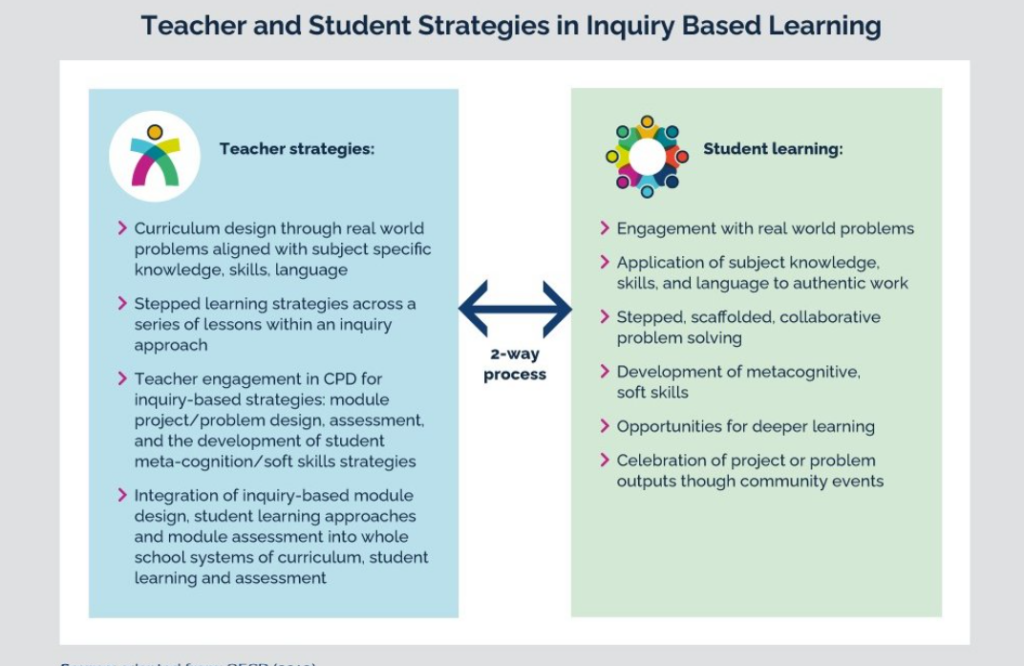Teaching Approaches which Support Interdisciplinary Learning
Interdisciplinary learning can be supported by the same pedagogy and teaching practices as discrete learning. However, practitioner experience, current research and international policy suggests that inquiry-based learning approaches effectively support the knowledge and skills acquisition and application required by interdisciplinary (and multidisciplinary) learning. Click on the green icons above to explore two pedagogical approaches which are working well in and beyond Falkirk schools and centres. Read on for more information about inquiry-based teaching and learning.

The Edge Foundation visual above lists the strategies common to inquiry-based teaching and learning. (Click here to visit their site and register for access)
Their visual below lists 12 types of inquiry-based learning which select and blend these strategies. A key feature shared by all of these approaches is careful consideration of the balance of practitioner/student control over learning. Many also rely on the practitioner’s ability to use dialogic teaching skills and effective questioning to promote student metacognition. Problem solving skills and creative and critical thinking are essential elements of inquiry-based learning alongside collaboration and communication.
The Edge Foundation list the following 12 variants of inquiry-based learning. In practice, you may already be blending elements of these within your teaching. For a brief outline of each approach open Y McBlain’s notes here.




